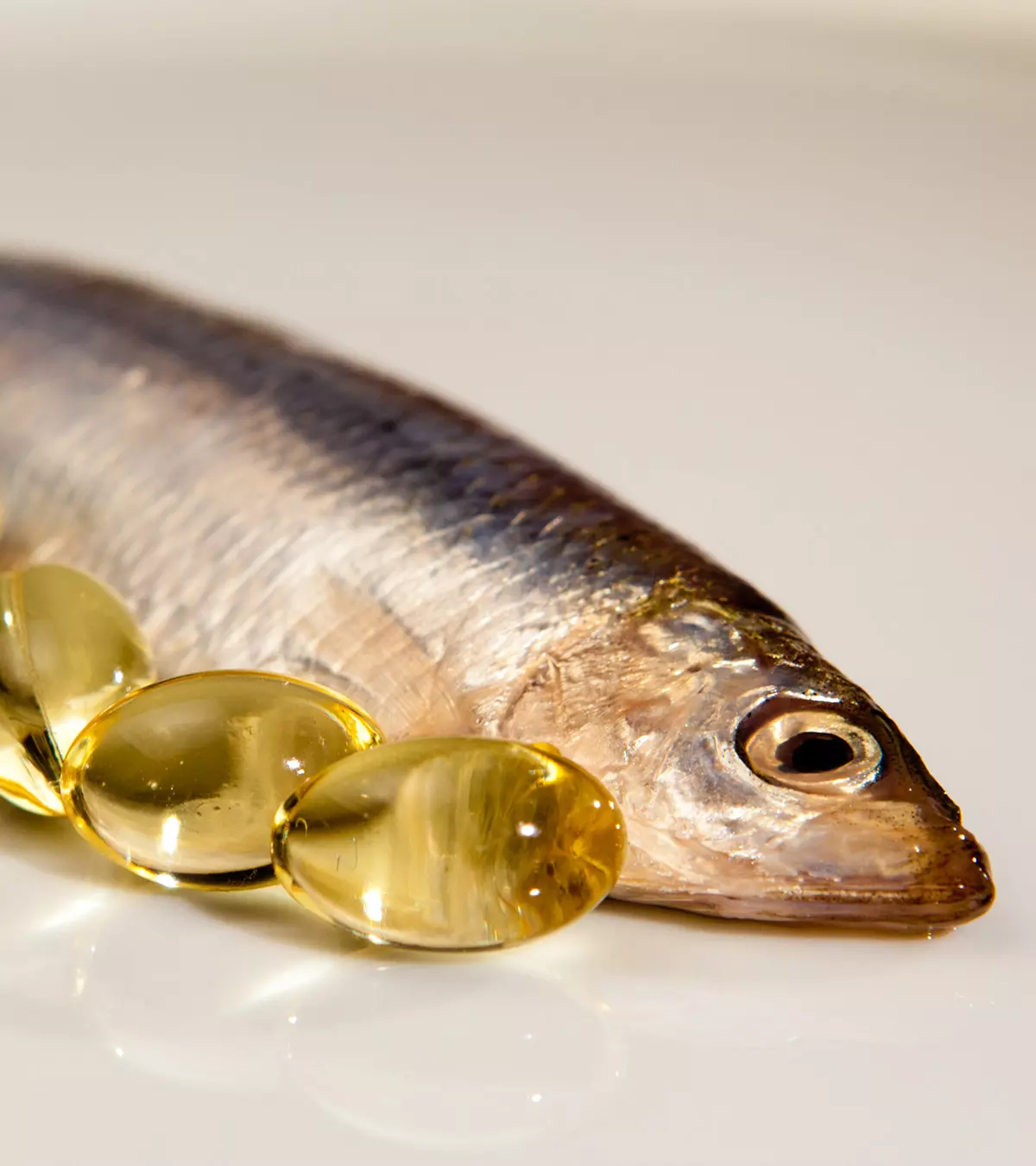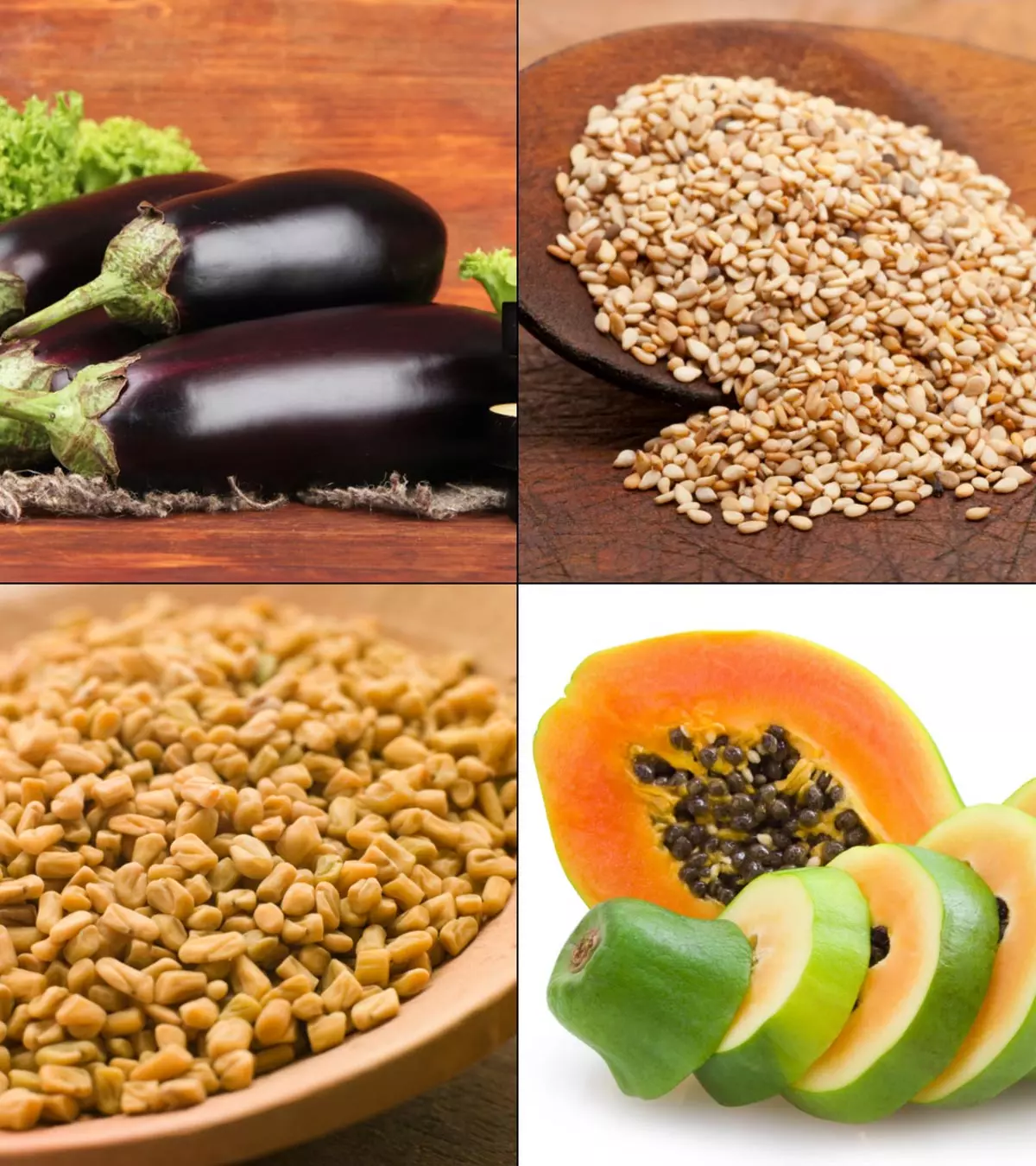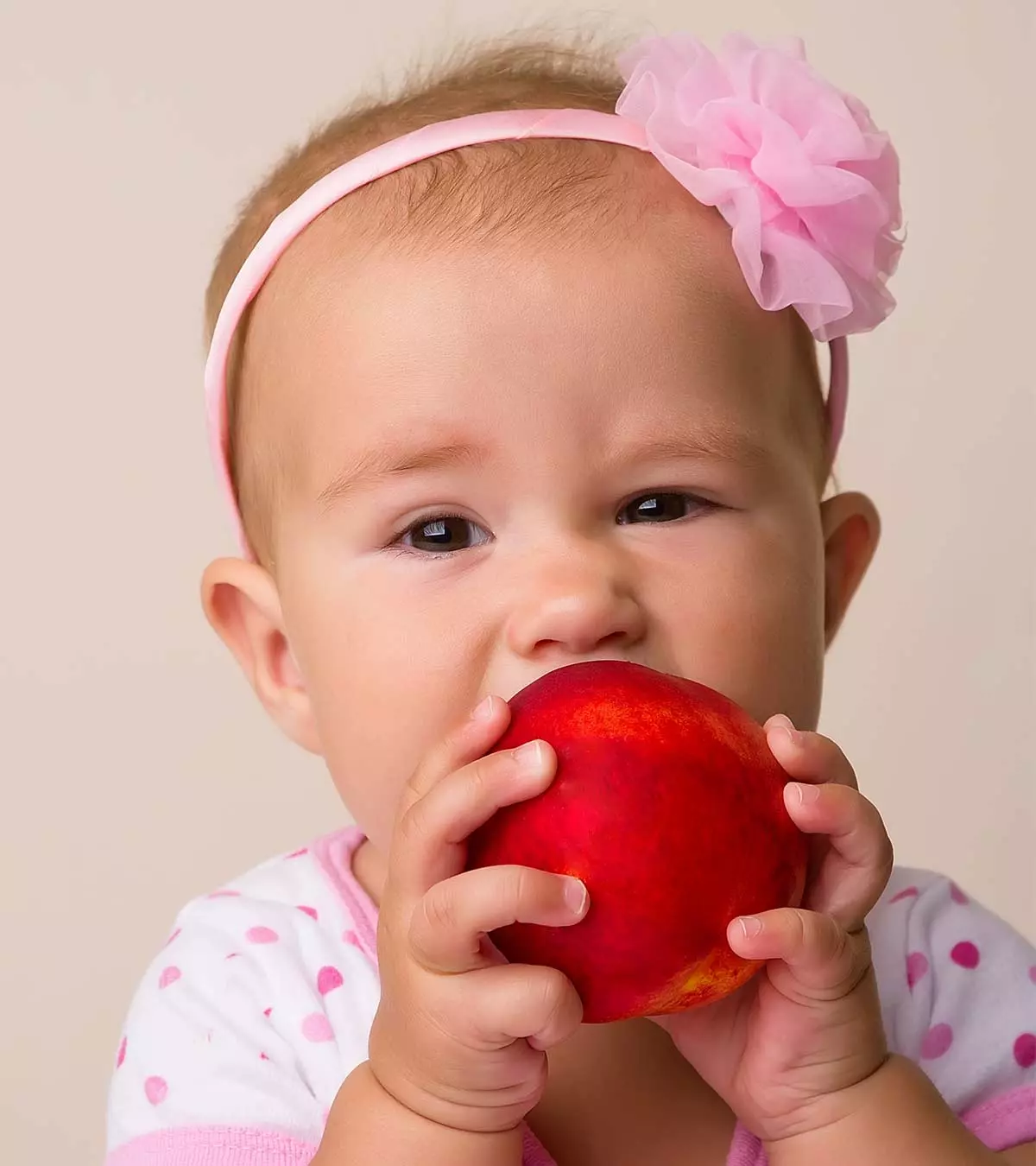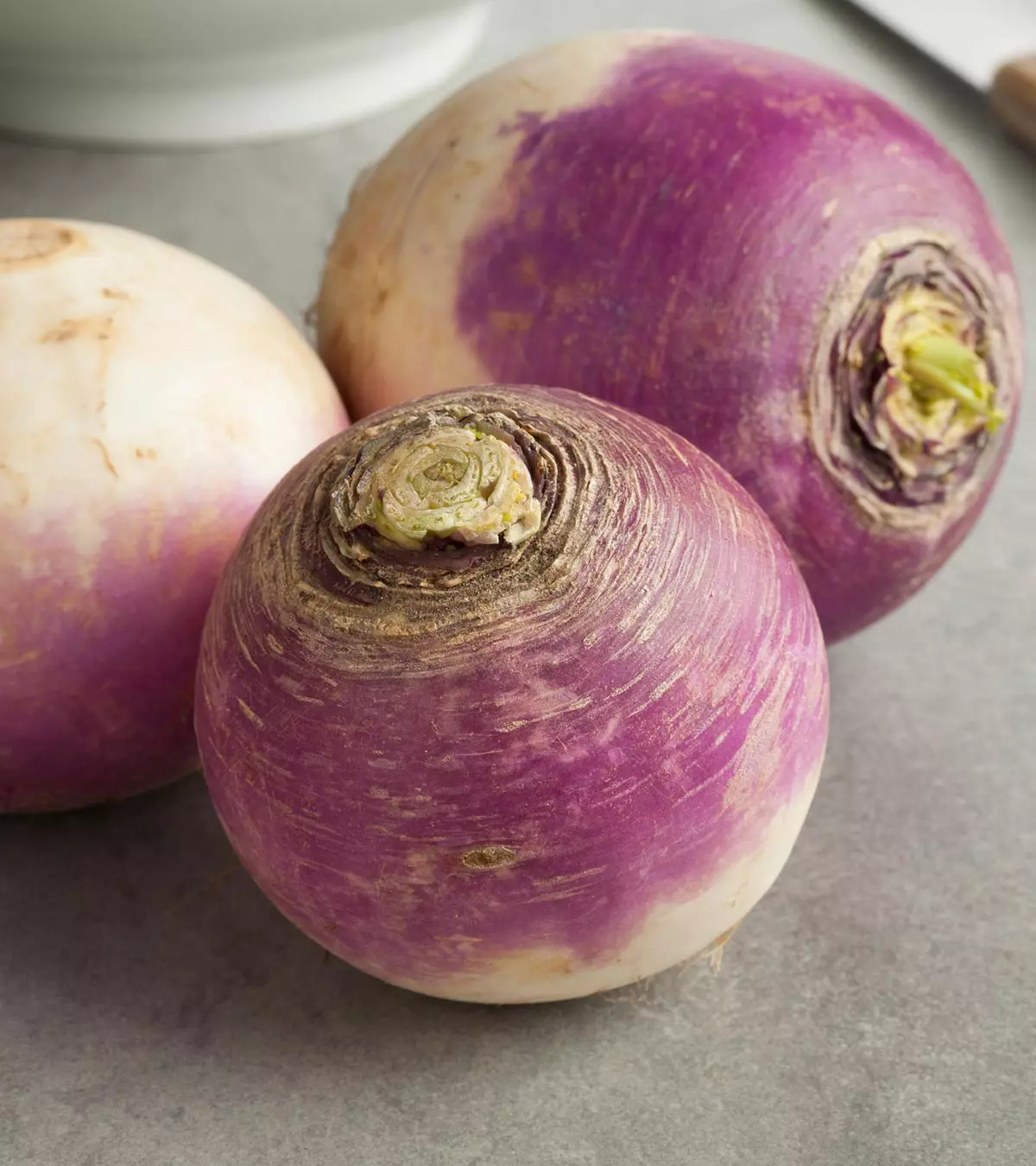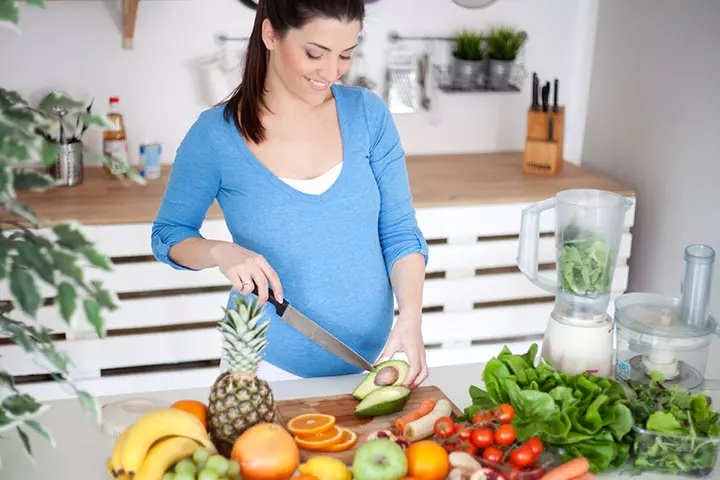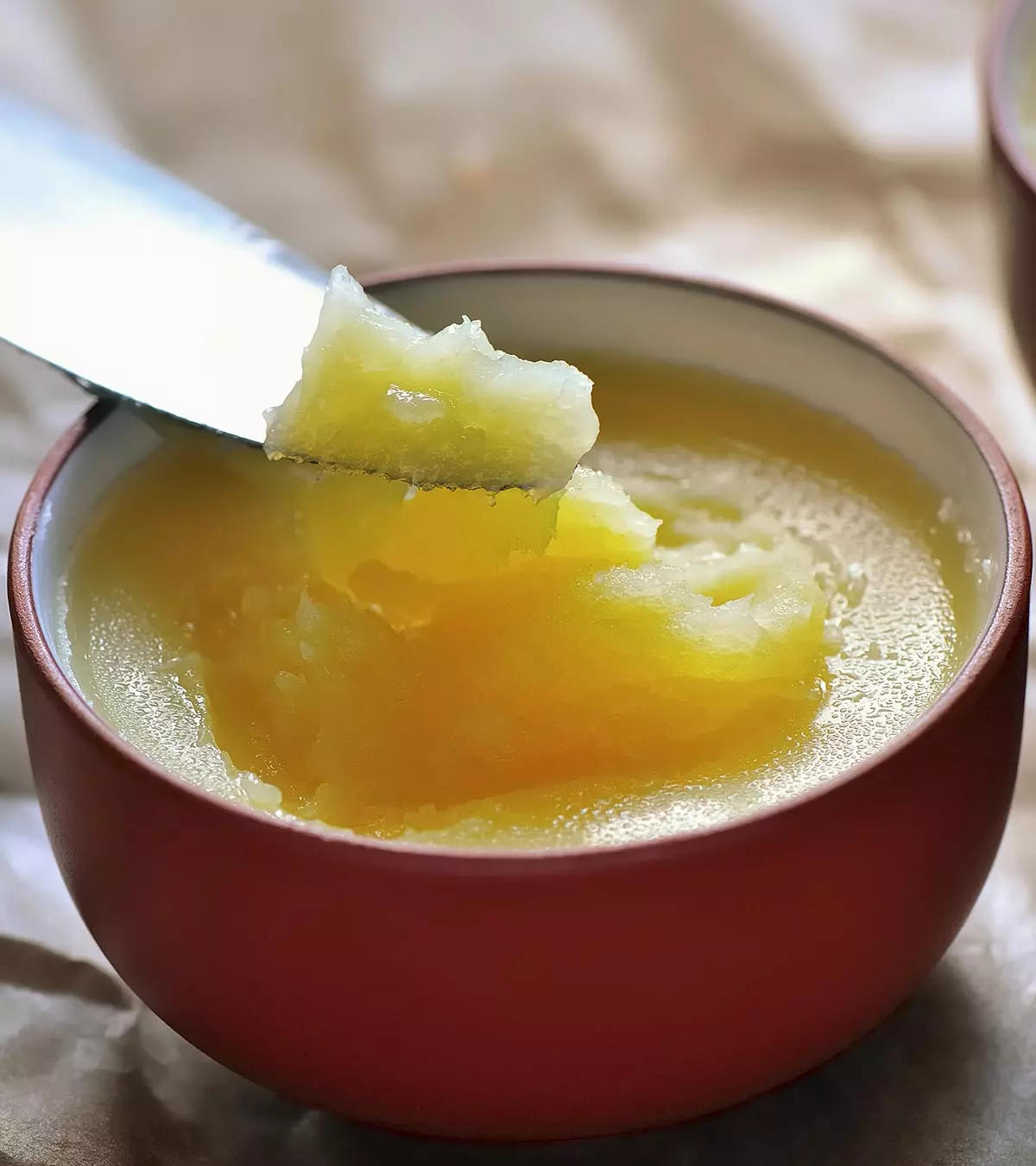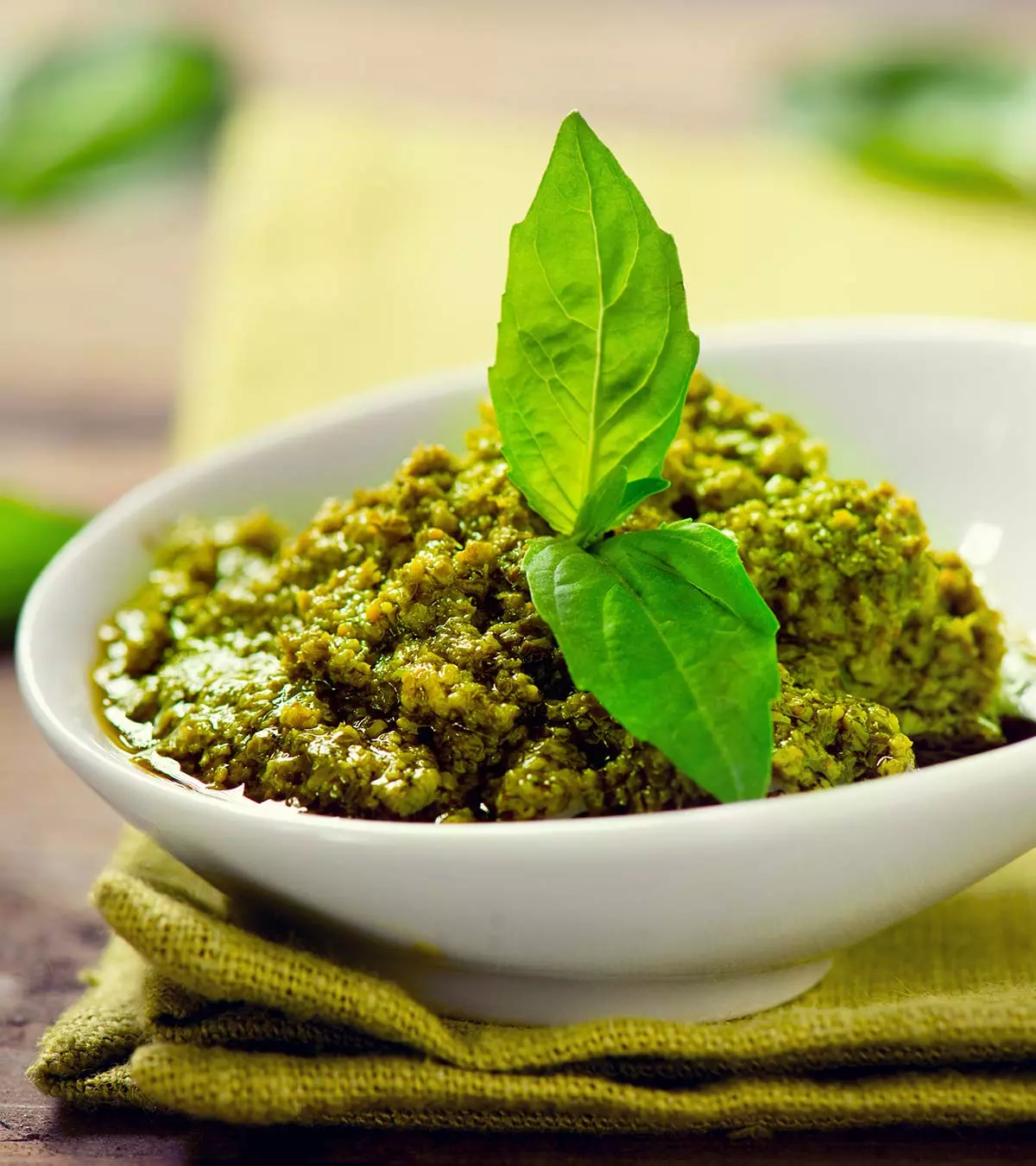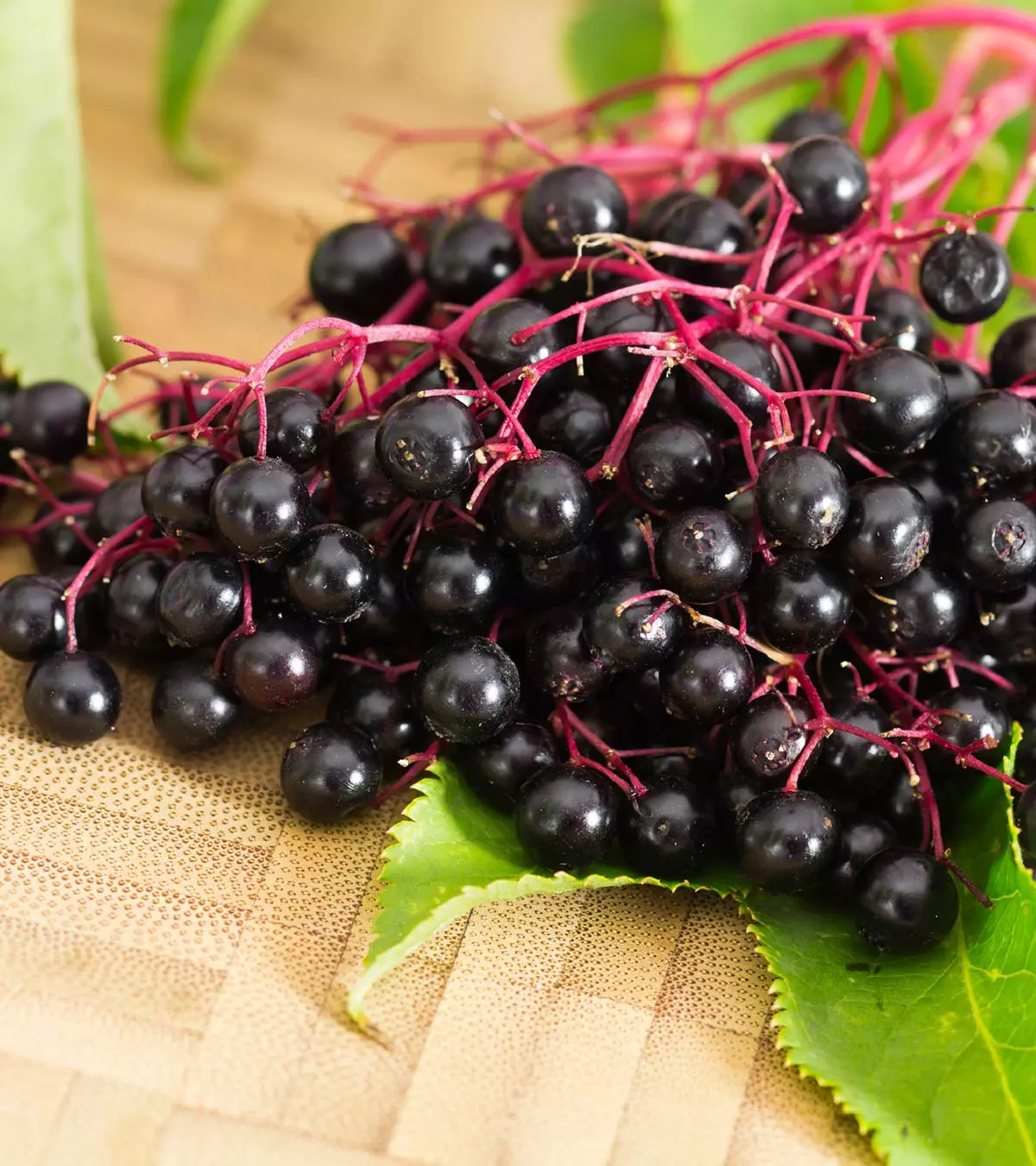
Image: ShutterStock
Pregnancy often comes with many dietary considerations, but passion fruit can be a nutritious addition to your pregnancy diet.
Consuming passion fruit during pregnancy can satisfy your cravings for something sweet and sour while promoting a healthy pregnancy. The tropical fruit is filled with nutrients that can alleviate many of the common health problems faced by pregnant women. It may also help improve immunity, ensuring a safe pregnancy for you and your baby. So you may include passion fruit moderately in a gestational diet to achieve optimum maternal nutrition.
Read on to know about the unique fruit, including its benefits during pregnancy.
Key Pointers
- Passion fruit is a sweet and sour pregnancy-safe delicacy.
- It is rich in antioxidants, carotene, dietary fiber, vitamins, and essential nutrients such as iron and magnesium.
- Consuming passion fruit during pregnancy aids fetal development, increases immunity, and promotes bone health.
- The nutrients in this fruit improve digestion, respiratory health, sleep quality, heart, eye, and skin health.
- However, pregnant women with gestational diabetes should consume the fruit after medical consultation.
What Is A Passion Fruit?
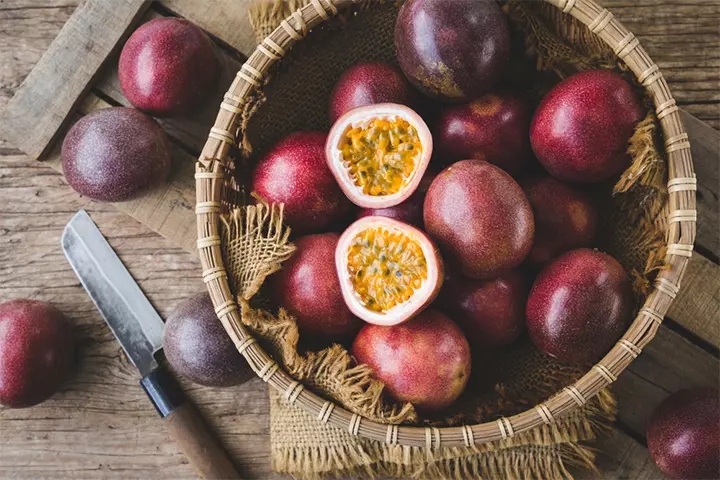
Image: Shutterstock
Passion fruit is native to Brazil, Argentina, and Paraguay. It is rich in vitamins A, C, B2, B6, and B3. It is also a storehouse of dietary fiber and minerals like Potassium, Iron, Phosphorus, Copper, and Magnesium. It offers several health benefits and is one of the best fruits to eat during pregnancy. Also, as there are no side effects of eating passion fruit during pregnancy, you can safely enjoy its goodness (1).
 Quick tip
Quick tipNutritional Value Of Passion Fruit
The following table lists the important nutrients per 100gm passion fruit as per US Department of Agriculture Food Data Central (USDA) (2).
| NUTRIENTS | AMOUNT |
|---|---|
| Energy (Kcal) | 97 |
| Fiber, total dietary (g) | 10.4 |
| Calcium, Ca (mg) | 12 |
| Iron, Fe (mg) | 1.6 |
| Magnesium, Mg (mg) | 29 |
| Phosphorus, P (mg) | 68 |
| Potassium, K (mg) | 348 |
| Sodium, Na (mg) | 28 |
| Vitamin C, total ascorbic acid (mg) | 30 |
| Riboflavin (mg) | 0.13 |
How To Incorporate Passion Fruit Into Your Diet
This nutritious fruit makes a great addition to your pregnancy diet. You may simply eat it raw by cutting the fruit in half and using a spoon to scoop out the pulp to eat. Alternatively, you may blend it into a smoothie with milk, yogurt, banana, honey, and coconut water, or can top your yogurt, salsa, fish, and white meat with a passion fruit sauce, jelly, or jam. You can also use the juice in a variety of ways, such as mixing it with water and sugar, adding it to other fruit juices, or boiling it into syrup.
Health Benefits Of Passion Fruit During Pregnancy
Here are some nutritional benefits of consuming passion fruit during pregnancy:
1. Promotes Growth And Development Of The Fetus:
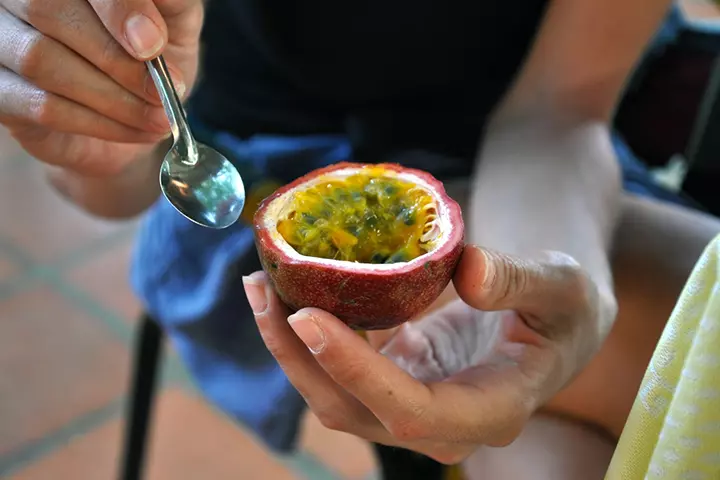
Image: Shutterstock
Passion fruit is rich in antioxidantsiSubstances that may prevent or slow down some types of cell damage caused due to harmful molecules called free radicals , fibers, vitamins, minerals, and many other essential nutrients that are necessary for the growth and development of the fetus. So eating passion fruit when pregnant will ensure you have a healthy baby in your arms soon.
2. Boosts Immunity:
Passion fruit is popular for its immune strengthening property since it contains high amounts of vitamin C, beta-cryptoxanthini A carotene and a vitamin A precursor necessary for growth, development, eyesight anf immune response , and alpha-carotenei A carotene with antioxidant, anticarcinogenic and immune boosting properties . These antioxidants help in neutralizing the free-radical activity, preventing damage to cells, reducing oxidative stress and ensuring a healthy pregnancy. Increased immunity will help you fight several infections and enjoy a safe pregnancy.
3. Ensures Good Bone Health:
Passion fruit is rich in minerals, such as phosphorus, iron, magnesium, and copper. Its consumption increases mineral bone density and makes your bones strong. It is necessary to have strong and healthy bones while expecting. Consuming the fruit also helps prevent or reduce the symptoms of osteoporosisi A bone disease characterized by a reduction in bone mass and mineral density, leading to porous and brittle bones and joint aches while expecting (3).
4. Reduces Insomnia And Restlessness:

Image: Shutterstock
Passion fruit contains medicinal alkaloids, such as harman, which provides a sedativeiA medicine or chemical used to help people relax, reduce anxiety, or fall asleep effect. So, eating the fruit during pregnancy effectively minimizes restlessness, anxiety, and insomniai A sleep disorder that makes it difficult for one to fall asleep, stay asleep, or get a sound sleep (4).
5. Minimizes Respiratory Problems:
The delicious fruit works as an excellent expectorantiA medication that helps clear mucus from airways . Consumption of the extracts of the fruit while expecting alleviates the symptoms of wheezing, cough, and asthma (4).
6. Promotes Healthy Digestion:
Passion fruit is rich in fiber, and just one serving of the fruit offers you about 98% of the daily requirement of the essential nutrient. Regular intake of the fruit improves digestive health and bowel movements. It prevents constipation, a common complaint during pregnancy.
7. Regulates Blood Pressure:
Passion fruit is rich in potassium, which is a crucial mineral for the human body. Potassium acts as a vasodilator, it relaxes the blood vessels and improves blood flow. So, eating the fruit ensures that your blood pressure remains in check, and you enjoy good heart health during these crucial nine months (6).
8. Improves Blood Circulation:
The high iron content in the passion fruit ensures an increase in production of hemoglobin. Good RBC count dilates blood vessels enabling oxygenated blood to flow freely to all parts of the body. It also helps improve the functioning of all organs while you are expecting. Add passion fruit to your pregnancy diet to keep the threat of anemia and related complications at bay.
9. Promotes Skin And Eye Health:
The vitamin A in the tangy fruit prevents the risk of cataractiA cloudy or opaque area in the lens of the eye , night blindness, and other eye related problems. It also boosts your skin health, and you may win compliments during pregnancy for a glowing countenance by having this super food!
 Quick tip
Quick tipFrequently Asked Questions
1. Is it safe to drink passion fruit juice while pregnant?
You may drink passion fruit juice in limited amounts during pregnancy. Large amounts may not be suitable as they contain cyanogenic glycosides, which are plant toxins (7).
2. Is unripe passion fruit poisonous in pregnancy?
Unripe passion fruit may contain cyanogenic glycosides and should not be eaten during pregnancy. It may cause nausea and vomiting (8) (9).
3. Is passion fruit good for morning sickness?
Tart or sour flavor may help relieve the symptoms of morning sickness in some pregnant women (10). The sweet and tart taste of ripe passion fruit may be helpful for them.
4. Is passion flower safe during pregnancy?
Passionflower is not recommended during pregnancy or breastfeeding (11).
Consuming healthy fruits and vegetables such as passion fruit during pregnancy may satisfy your pregnancy cravings and provide you and your baby with several health benefits. Besides enhancing your pregnancy health, it could also aid in the healthy development of your fetus. However, if you have gestational diabetes, you must take your doctor’s opinion before eating passion fruit since it may add to your calorie intake through sugars. Otherwise, you may safely include passion fruit in moderation in your pregnancy diet to reap the goodness of this nutrient-dense fruit during pregnancy.
Infographic: Advantages Of Eating Passion Fruit During Pregnancy
Passion fruit is a tropical fruit filled with juicy, flavorful seeds and sweet, tangy pulp. It is packed with vital vitamins and nutrients that are advantageous for expectant mothers. So, explore the various benefits of eating passion fruit during pregnancy in the infographic below.
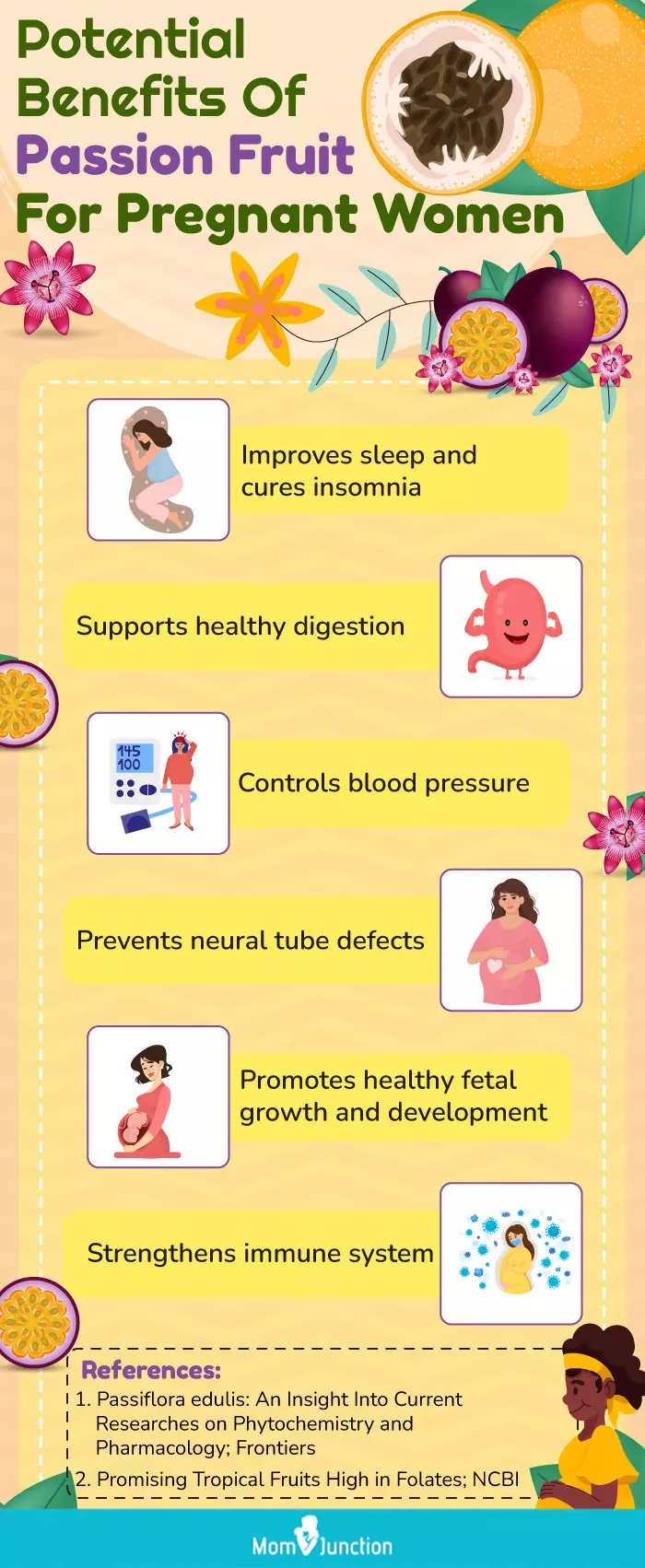
Illustration: Momjunction Design Team
Illustration: Wonderful Health Benefits Of Passion Fruit During Pregnancy
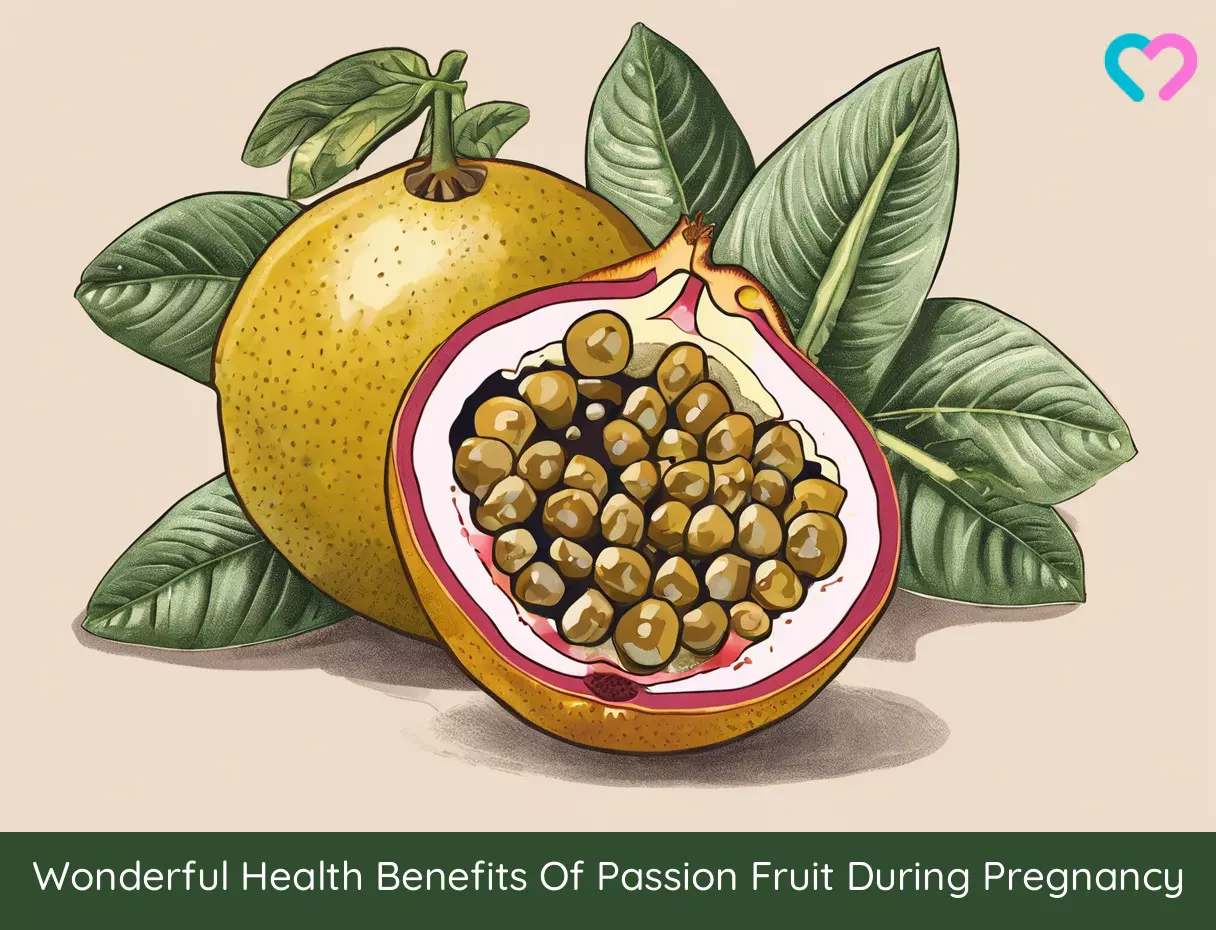
Image: Stable Diffusion/MomJunction Design Team
References
- Passion fruit (granadilla) purple raw.
https://www.self.com/ - Passion-fruit, (granadilla), purple, raw.
https://fdc.nal.usda.gov/fdc-app.html#/food-details/169108/nutrients - Reza Farid et al.; (2010); Oral intake of purple passion fruit peel extract reduces pain and stiffness and improves physical function in adult patients with knee osteoarthritis.
https://pubmed.ncbi.nlm.nih.gov/20934601/ - Passion flower.
https://www.drugs.com/npp/passion-flower.html - Ronal Ross Watson et al.; (2008); Oral administration of the purple passion fruit peel extract reduces wheeze and cough and improves shortness of breath in adults with asthma.
https://pubmed.ncbi.nlm.nih.gov/19083404/ - Fruit.
https://www.eatforhealth.gov.au/food-essentials/five-food-groups/fruit - David Chassagne et al.; (1996); Identification and Quantification of Passion Fruit Cyanogenic Glycosides.
https://pubs.acs.org/doi/abs/10.1021/jf960381t - Passiflora toxicity.
https://www.passionflow.co.uk/passiflora-toxicity/ - Wild Passionfruit
https://www.poisonsinfo.health.qld.gov.au/plants-and-mushrooms/wild-passionfruit-passiflora - WHAT TO DO ABOUT “MORNING SICKNESS”.
https://ncbirthcenter.org/wp-content/uploads/2014/10/morning-sickness-info1.pdf - Passionflower.
https://www.mountsinai.org/health-library/herb/passionflower#
Community Experiences
Join the conversation and become a part of our nurturing community! Share your stories, experiences, and insights to connect with fellow parents.
Read full bio of Shivani Sikri
Read full bio of Ria Saha
Read full bio of Swati Patwal
Read full bio of Lorraine Teron








